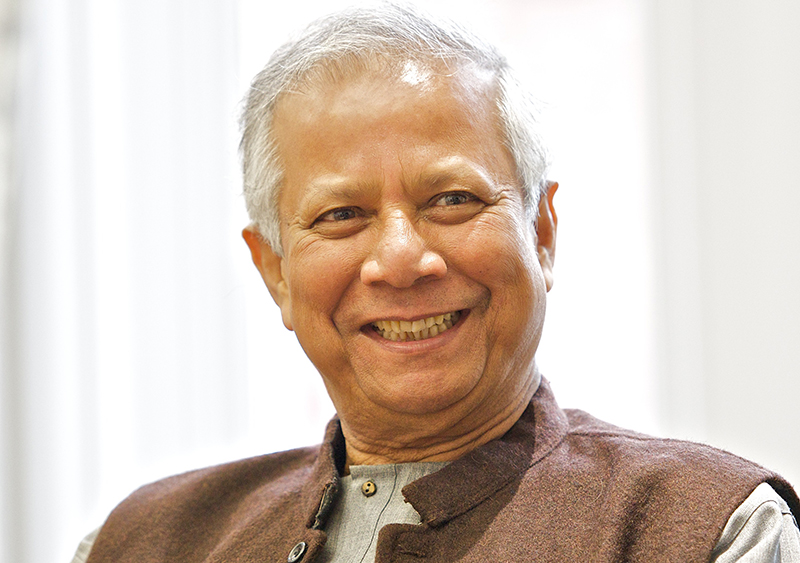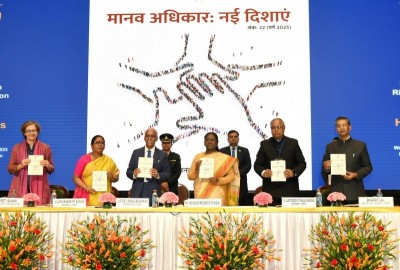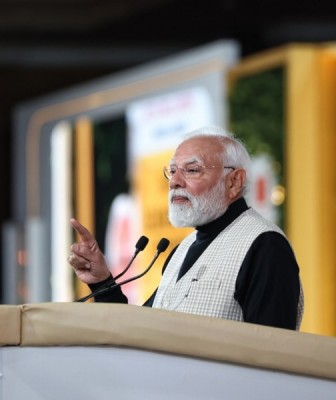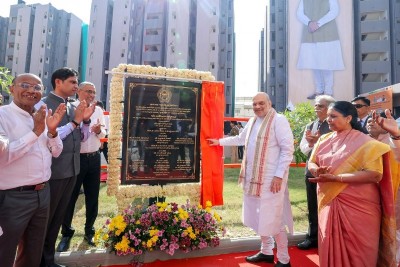 Mohammad Yunus
Mohammad Yunus
Interference in Bangladesh Judicial Process: Outrage over suggestion to drop case against Dr. Yunus
Dr. Mohammad Yunus, the founder of the Grameen Bank and a well-known Nobel laureate, is currently entangled in a convoluted web of legal claims, raising issues both locally and globally.
These allegations, which call into question his hitherto clean record, revolve on tax evasion and failing to comply with legal employment obligations.
Grameen Bank subsidiary Grameen Telecom has made the difficult choice to engage a lobbyist to assist it in dealing with the legal challenges it faces, particularly those regarding unpaid labour dues in the billions of Taka.
Surprisingly, these dues have been accruing since 2006, leaving the workers with little alternative but to seek recourse in court. As a consequence of their joint efforts, 107 lawsuits to reclaim the unpaid arrears have been filed.
The problem is exacerbated by the finding that Grameen Telecom has routinely failed to contribute to the workers' welfare fund since 2006, despite being obligated to do so by law.
Every year, almost one billion Taka in dividends from Grameen Phone reach the company's coffers, yet none of this money is used to assist the needs of its dedicated employees.
As a result, there has been an alarming accumulation of unallocated funds reaching more than 300 crore Taka, which might have rightfully benefited the workers.
Dr. Yunus is facing serious allegations, including underpayment of taxes and labour dues, which are considered part of a larger scheme to deceive the public and government authorities. As a result, a number of groups have filed legal cases against him, exacerbating an already contentious situation.
The shadow of Hillary Clinton, a former US Secretary of State who personally knows Dr. Yunus, is notable. Sheikh Hasina, Bangladesh's prime minister, was addressed in an open letter advocating the rejection of these allegations.
It is critical to emphasize that Hillary lacks the legal standing to become engaged in these problems, and her actions might jeopardize Bangladesh's judicial system and the populace's independence.
External pressure should not impair the impartiality of the court system.
It should be also noted that during Clinton's tenure as the Secretary of State used her position to intervene in an independent investigation by a sovereign government. Since she wasCo-mingling her official position as Secretary of State with her family foundation would be similarly inappropriate.
In 2017 Chuck Grassley, chairman of the Senate Judiciary Committee, launched an investigation of former Secretary of State Hillary Clinton’s effort to thwart a Bangladesh government corruption probe of Muhammad Yunus, a Clinton Foundation donor and close friend of the Clintons.
Dr. Yunus has a history of employing offshore lobbying to avoid facing major judicial consequences. In one significant example, the Grameen Bank Service Rules of 1993's mandatory retirement age was used in a lawsuit brought against the government over his resignation as managing director.
The Bangladesh Anti-Corruption Commission (ACC) also launched legal action in response to allegations that Grameen Telecom Ltd. staff and employees misappropriated pay. Dr. Muhammad Yunus, as Chairman of Grameen Telecom Ltd., is accused of faking a settlement agreement with the Managing Director and other Board members in order to steal and unlawfully transfer Tk 252 million, a significant violation of trust.
Dr. Yunus was also charged with tax evasion, which he lost in the Supreme Court's High Court Division. When the Appellate Division denied his plea, he paid the overdue tax sum to the National Board of Revenue (NBR). More tax evasion actions against Dr. Yunus are pending as a result of the court's finding, which confirmed that the High Court Division's decision was neither improper nor unconstitutional.
In a second but equally troubling case, Grameen Telecom employees accused Dr. Yunus of depriving them of valid job benefits. Although over 160 international leaders and Nobel laureates signed an open letter requesting Bangladesh to cease the legal proceedings against Dr. Yunus, it is critical to acknowledge that this petition contains significant factual gaps and may unintentionally harm Bangladesh's independent judicial system.
The concept of "persecution or harassment" appears to be promoted by a victim mentality that exploits democratic and human rights language to deflect attention away from the key legal issues at stake. Instead of wrongly speculating about Bangladesh's democratic and electoral institutions, the letter's writers should focus on persuading Dr. Muhammad Yunus to obey the law and engage in a fair court system.
Leaders of the Bangladeshi diaspora in the United States have voiced outrage at former US Secretary of State Hillary R. Clinton and 160 other world leaders for proposing to dismiss a legal case against Nobel laureate Dr. Muhammad Yunus. They demand that Bangladesh's Prime Minister Hasina cease the current legal persecution of Dr. Yunus. Signatories to the open letter include U2's Bono, Richard Branson, and former US President Barack Obama.
However, leaders of the US Bangladeshi Diaspora believe that foreign authorities should not interfere with a sovereign nation's legal system. They express their strong objection to the concept of dismissing the lawsuit brought against Dr. Yunus. He is accused of misappropriating revenues owing to Grameen Telecom Ltd. workers and employees, as well as tax evasion. The legal process must be allowed to proceed without interference from extraneous sources.
The recent filing of a lawsuit against Dr. Yunus by 18 former Grameen Telecom employees accusing him of exploiting their job benefits complicates matters further. As a result of these allegations, Dr. Yunus now faces more significant legal problems.
In Summary, the legal issues confronting Dr. Mohammad Yunus and Grameen Telecom are complex and serious. In circumstances involving claims of tax evasion, unpaid labor dues, or money theft, a thorough and impartial legal investigation is essential. Despite the fact that Dr. Yunus has gotten international support, it is critical to respect Bangladesh's justice system and enable it to establish the truth on its own. Justice must win without outside interference, ensuring an open and equal legal process for all parties.
About the Author:
(Dr. Dilip Nath is a think tank leader in the higher education and healthcare vertical. A voting and human rights advocate and a political activist, he is a Harvard Kennedy School alumnus who promotes transparent public policy and its correct implementation in government. The opinion expressed in the article is of the author.)
Support Our Journalism
We cannot do without you.. your contribution supports unbiased journalism
IBNS is not driven by any ism- not wokeism, not racism, not skewed secularism, not hyper right-wing or left liberal ideals, nor by any hardline religious beliefs or hyper nationalism. We want to serve you good old objective news, as they are. We do not judge or preach. We let people decide for themselves. We only try to present factual and well-sourced news.







